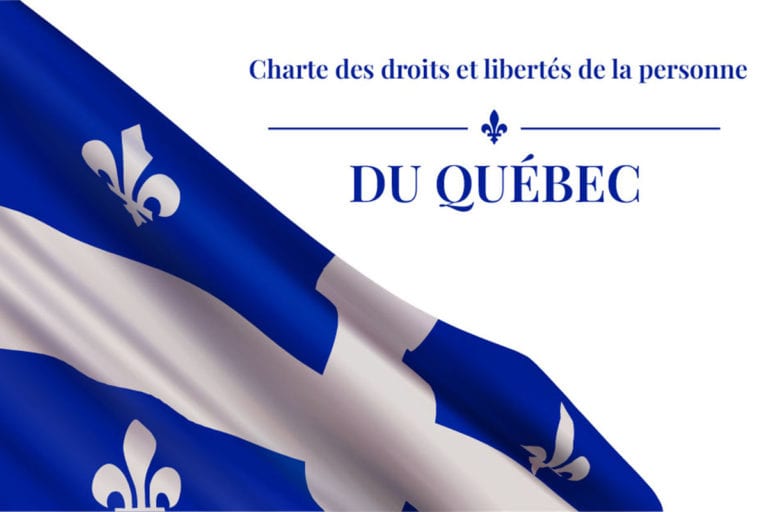Quebec Charter: Binding on individuals, not limited to protected areas, and explicitly protecting a right to dignity. Jérémy Gabriel had a case. Until he didn’t.
The Quebec Charter
Almost six years before the Canadian Charter of Rights and Freedoms, and nearly nine years before its s. 15 equality rights took effect, the province of Quebec, on June 28, 1976, brought into force its own Charter of Human Rights and Freedoms.
More than an anti-discriminatory statute, the Quebec Charter is a fundamental law that (usually) takes precedence over all other provincial laws (the Quebec Charter also has a notwithstanding clause). It is second only to the Canadian Charter. More inclusive than the Canadian Charter or other human rights legislation, the Quebec Charter
“… was based on international declarations and covenants that set out the rights and freedoms of all human beings, like the Universal Declaration of Human Rights, the International Covenant on Civil and Political Rights, and the International Covenant on Economic, Social and Cultural Rights.”
Jérémy Gabriel Could File a Charter Complaint Against Mike Ward
Critical to our discussion of Ward:
1. The Quebec Charter is binding on individuals, not just the state:
“The main purpose of the [Quebec] Charter is to ensure consistency in the way people are treated by one another and by their institutions: it applies to relationships among individuals and to the relationship between individuals and the state.”
2. As the Ward court noted, discrimination under the Quebec Charter is not limited to protected areas:
“[54] … the Quebec Charter is much broader in scope than the Canadian Charter and other human rights statutes: it does not apply only to dealings with the state or to certain areas of activity, but extends to all relationships between individuals.”
3. The Quebec Charter does more than place the concept of dignity as a goal in its preamble; in section 4, it specifically protects against loss of dignity:
“4. Every person has a right to the safeguard of [their] dignity, honour and reputation.”
No Need For A Protected Area
Jérémy did not need to argue that Mike Ward’s jokes had the typical discriminatory impact of, for example, costing him an opportunity, such as a singing contract, or a loss of his singing income.
Instead, he could claim that they caused a loss of dignity. Both the majority decision and dissenting opinion discussed section 4, with the majority noting:
“The right to the safeguard of dignity set out in s. 4 of the Quebec Charter permits a person to claim protection from the denial of their worth as a human being. It protects the humanity of every person in its most fundamental attributes.
Where a person is stripped of their humanity by being subjected to treatment that debases, subjugates, objectifies, humiliates or degrades them, there is no question that their dignity is violated. In this sense, the right to the safeguard of dignity is a shield against this type of interference that does no less than outrage the conscience of society.”
It Was Discrimination ... Until It Wasn't
The Quebec Charter: Binding on individuals, not limited to protected areas, and explicitly protecting a right to dignity. Unlike anywhere else in Canada, Jérémy Gabriel could file a human rights complaint, arguing that Mike Ward violated his Quebec Charter rights.
But being written into law is not enough, because laws still require interpretation. And the Ward majority, five of the nine highest ranked decision-makers in Canada’s legal system, watched a wild pitch hit the batter, and called it a strike.

